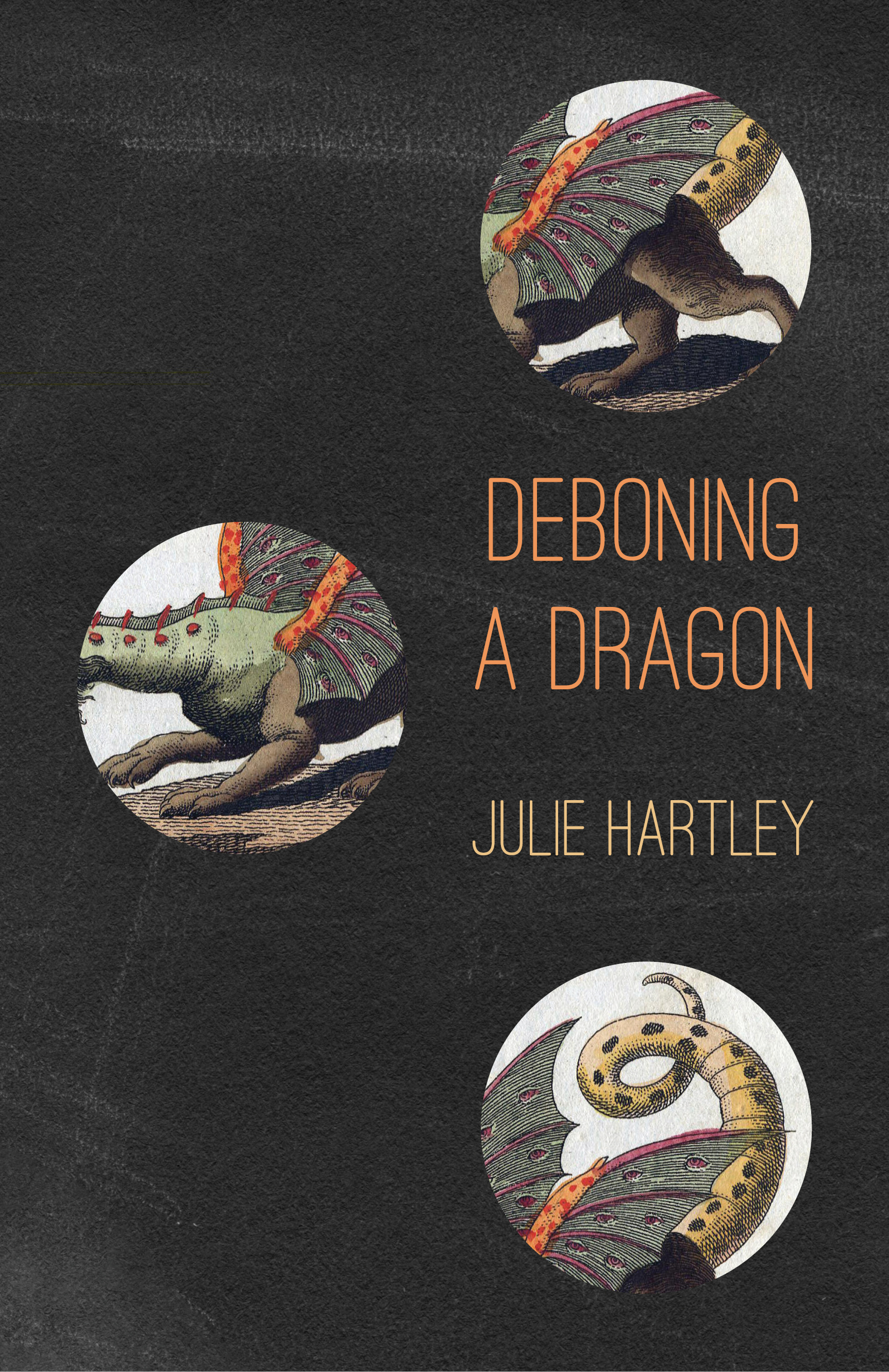Yesterday, we settled on the cover for my new poetry collection, out soon with Mansfield Press. I’m incredibly happy with it. The cover, designed by Denis De Klerck, perfectly captures the tone of the book.
I’ve been so fortunate throughout this entire experience: fortunate to have my collection picked up by a press with such an amazing reputation, and fortunate, too, to have Stuart Ross as my editor.
The poems in Deboning a Dragon were written over a span of 12 years. I first discovered a love of poetry at a writing retreat in 2006, and half a dozen poems in this collection were written at that time. In the months after the retreat, my life changed dramatically; my partner and I travelled to China to adopt a baby, and began to navigate the paths of parenthood. Such life-altering events lead to a reassessment of self that is both inward and backward, and throughout these years, I sometimes wrote a poem a day. Writing was a way to examine everything wonderful and challenging that had happened to bring us to this point in our lives, and the poems I wrote dealt not only with China and motherhood, but also with my own childhood and youth. Some also examined real emotions through the lens of imagined landscapes and events; after all, no one ever said poetry has to be ‘true’. Nevertheless, as a writer observed during my MFA years, most of my poems are characterised by an examination of my evolving sense of self.
Reading these poems written over a span of almost 15 years and representing 30 years of lived experience is somewhat strange for me, now. Our perspectives are ever-changing, and each poem represents my perspective in a fixed moment in time. What angered, upset or inspired me a decade ago does not necessarily represent how I feel today.
During the editing process, I asked Stuart: will readers assume all these poems are about things that really happened? His response was that readers of poetry do that occasionally, but shouldn’t. On an emotional level, all these poems are true; they were written out of a desire for authenticity, to reflect emotions and ideas that were genuine and real at the time of writing, even if the landscapes and images they explore grew from my imagination. But considered through the lens of my feelings and perspective in the here and now, almost none of them are ‘true’ any more. Of course, this is all completely irrelevant. What matters once the poems are published is not their relationship to my lived experience, but the readers’.




